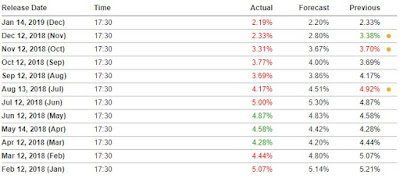All we hear is...short-selling brouhaha
With the Indian markets having a spectacular meltdown over the last few days (Nifty down 13% over the past five days), there are calls on the government to intervene. This intervention is sought in the form of either the government shutting down the stock markets, or at least banning short selling. Neither proposal finds favour with this author due to the inherent weakness of this approach.
Market is simply a mechanism of price discovery. It is well known that it acts as a voting machine in the near term, and a weighing machine in the long term. Greed & fear responses of investors find expression in near term stock price movements. The risks of investing in equity is also well known to its participants.
As such, shutting down the market due to adverse price conditions, or banning short selling run actually contra to the ethos of investing. While it is true that shutting down the market will freeze stock prices at a higher level, this would not be price discovery. Also, what would be the point of such a notional higher valuation if the investor is unable to sell at that price to realise it?
Similar logic holds for short selling. Short selling is a mechanism via which investors bet that a company (or the market as a whole) is overvalued and set for a decline. It is as important for price discovery as 'going long' is. Remember problems with companies likes IL&FS Transport, Yes Bank, Unitech, telecom sector etc. were first reflected in the stock prices before the government took any action on them. Ability to 'vote out' a company or the market is as important for a healthy market as the ability to 'vote for'.
If the government indeed steps in and changes the rules of the game due to a short term event, it undermines the credibility of the market. An investor will shy away from investing in the market if he thinks that when things go south, India may simply freeze his funds (by shutting the market).
Similarly, if an investor is smart enough to anticipate the problems and short the market, either has a hedge to his long portfolio, or a naked short to make profit, then shutting/ banning short-sale is unfair to him. Large portfolios are managed with a combination of long and short positions to calibrate the exact risk the investor wants to take. If the government suddenly steps in to shut down hedging instruments these investors may no longer be willing to invest again in such a 'proprietorially' run market. In fact the government will be actively punishing investors who were right!
An investor whose fingers are burned as a result of a post-facto rule change may either not be as invested in the market again, or he or she may sell off much before at the merest inkling of turbulence, not knowing if the government will change rules as it has done. And removal of short selling hardly prevents the stocks from declining. If panicked investors want to get out and there are no buyers, then the price at which stocks are offered for sale will anyway decline till they can be hit. At best, this price decline may be spread over a slightly longer period vs. an immediate impact as we see today.
Apart from this conceptual opposition to knee-jerk reaction of shutting markets etc, I must point out that studies re impact of such steps have been inconclusive. For example, per Grima/ Sammut, a ban on short selling actually increased the volatility in the markets they studied, a result that is the opposite of the intent of banning short selling. Additionally, markets showed better price discovery after the short sale ban was lifted. Short selling also reduced liquidity in the markets. However, Grima/Sammut also acknowledge that it helped stock prices over the longer term.
A study by Beber/ Pagano concludes "The evidence in this paper suggests that the reaction of most stock exchange regulators around the globe to the financial crisis—imposing bans or regulatory constraints on short selling—was detrimental for market liquidity, especially for stocks with small market capitalization, high volatility, and no listed options. Moreover, it slowed price discovery, and hence was at best neutral in its effects on stock prices. ...
.... The conclusion that this paper draws from this evidence is best summarized by the words of the former SEC Chairman quoted at the start of this paper: “Knowing what we know now, ... [we] would not do it again. The costs appear to outweigh the benefits.” It is to be hoped that this lesson will be remembered when security markets face the next crisis".
Another work in this area by Boehmer et al, concluded that large cap stocks who were subject to a short sale ban in the 2008 crisis"suffered a severe degradation in market quality, as measured by quoted and effective spreads, price impacts, and realised spreads....Market quality worsens because algorithmic traders cannot act as informal market makers during the ban...the remaining 'formal' market makers are able to earn greater rents at the expense of those demanding liquidity...Given the evidence, it is not at all clear that the SEC achieved its unstated goal of artificially raising prices on financial stocks, and it is clear that market quality was severely compromised."
I recommend that readers go through the original studies linked above.
In conclusion, while there may potentially be some benefit to changing the market rules mid-way, there are definitely large costs in the form of higher volatility, higher transaction costs, and the more dire...loss of credibility as a mature market. Markets are likely to bounce back as soon as the current crisis passes, however steps taken to change the rules of the game in already stressful times will be remembered for a long time.



Comments
Post a Comment